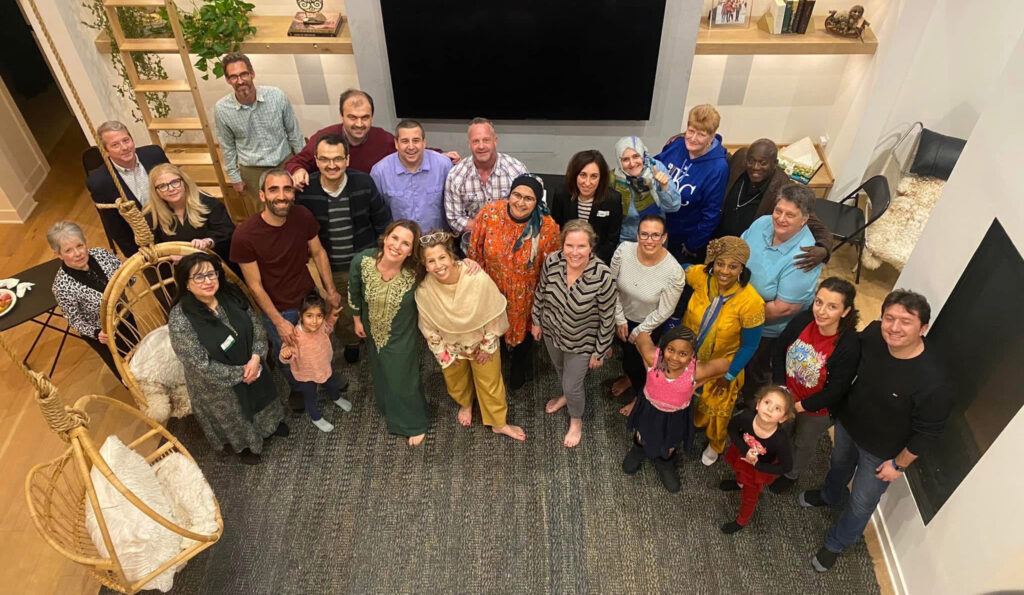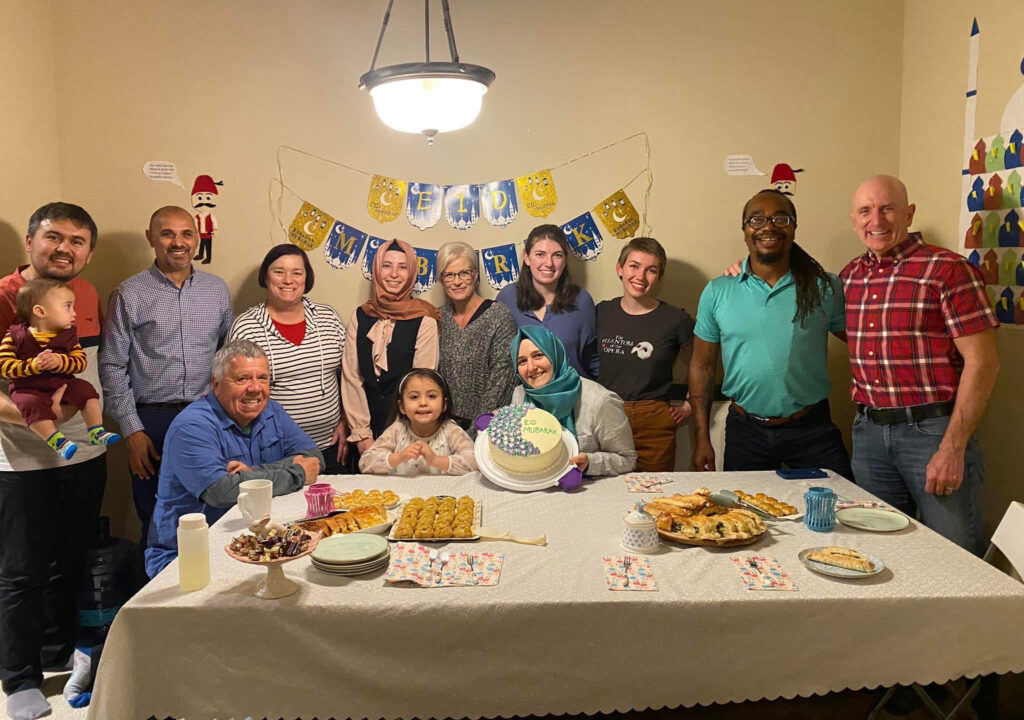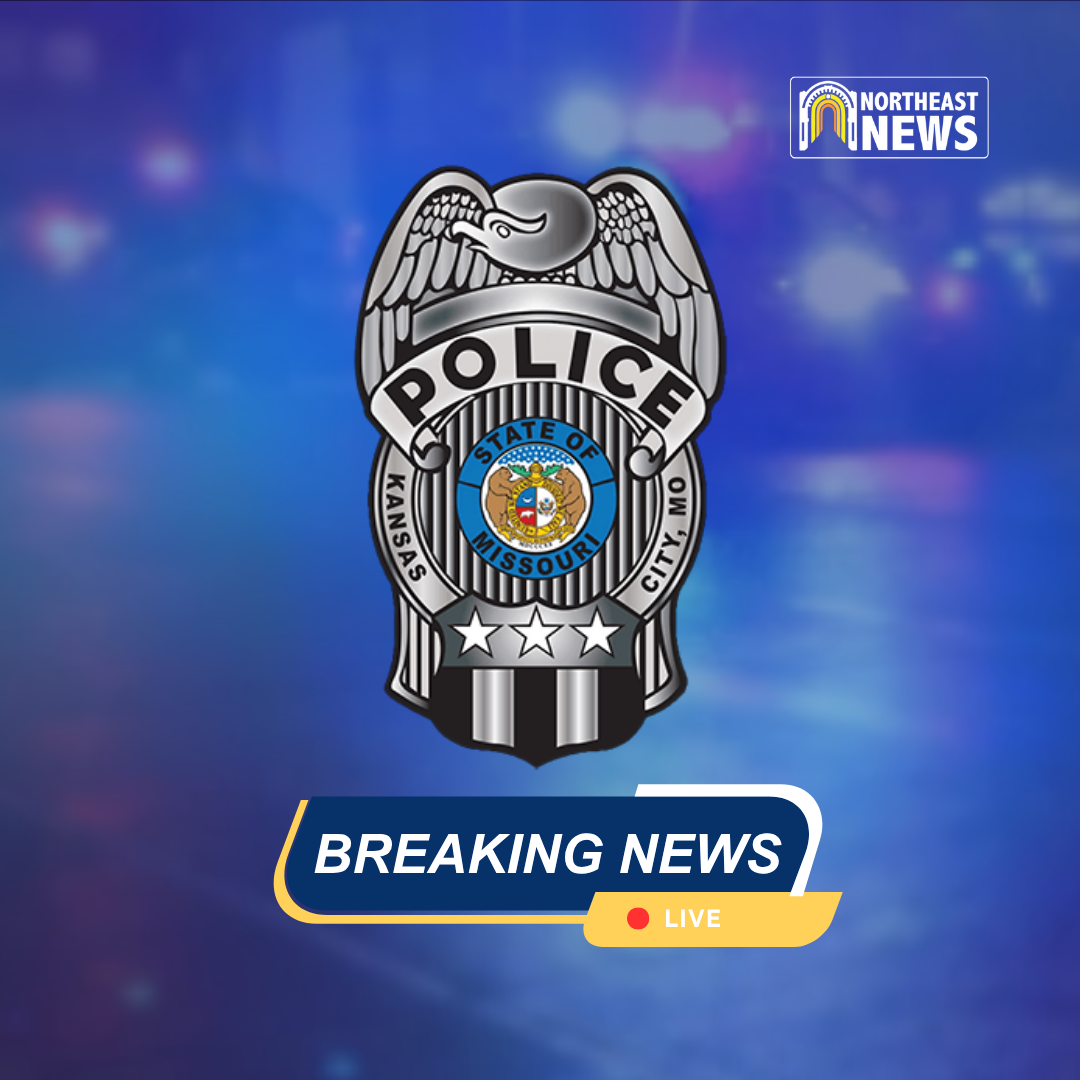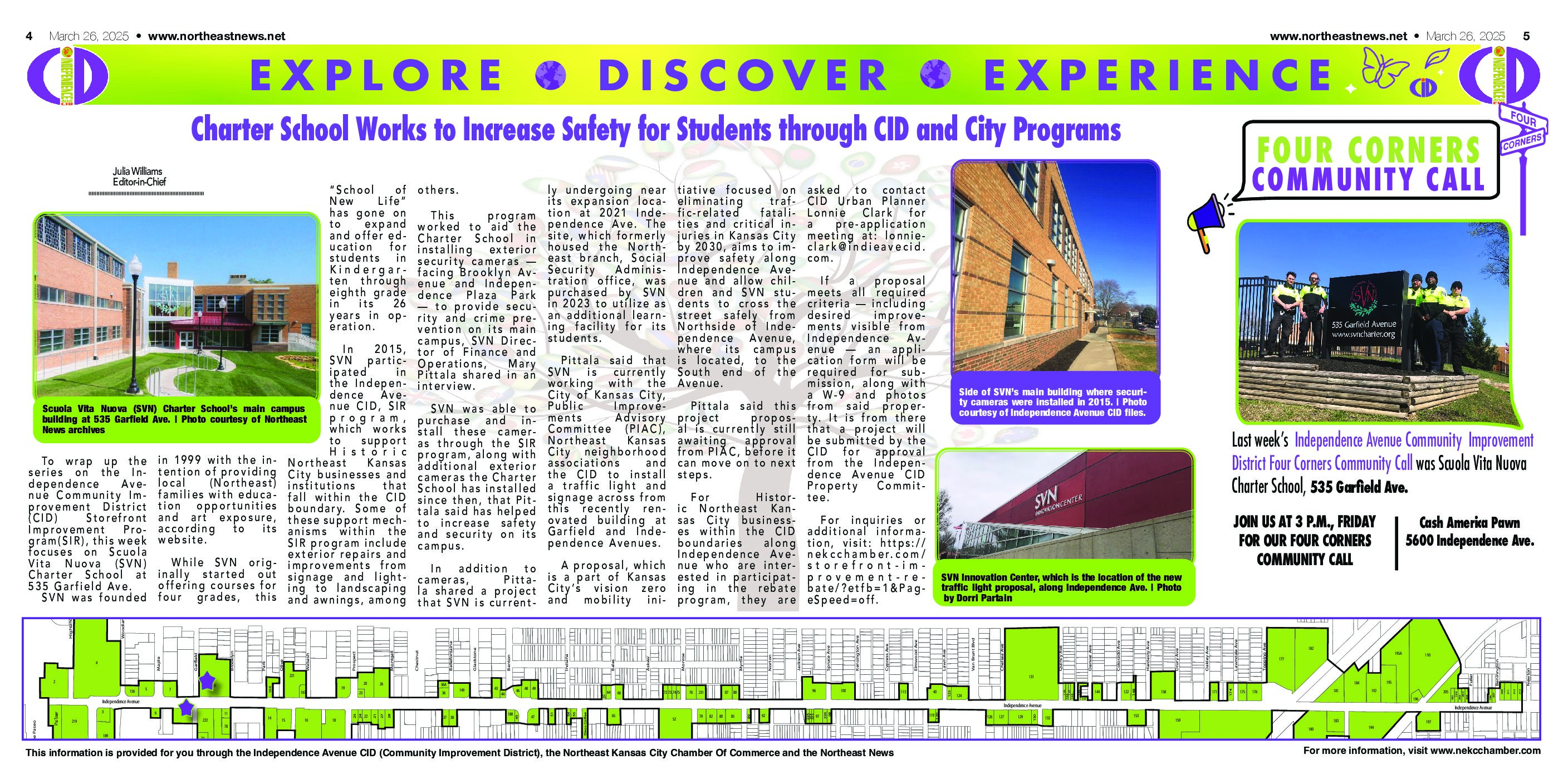
Julia Williams
Editor-in-Chief
The History of Ramadan
Ramadan is a 30-day period, commonly known as the “Holy Month” for those who practice Islamic faith throughout the world.
This holy month tradition was first recognized in the year 622 A.D. within the Middle Eastern city of Medina, Saudi Arabia. It is this city’s warm climate from which the name Ramadan derives, meaning “Burning Heat,” according to the Muslim Aid Media Centre.
Islam Prophet Muhammad is commonly known in Muslim culture as the “Founder of Islam” and the creator of its religious text “The Qur’an.” During Ramadan, many people who celebrate Islamic faith return to the birthplace of Prophet Muhammad, which is also referred to as the “holiest city” in Muslim culture and home to the world’s largest Mosque, located within Makkah (Mecca), Saudi Arabia.
This month of empathy and celebration is dependent upon the shape of the moon — meaning Ramadan will not begin and end on the same days each year. Instead, the long observance will begin at the new lunar month of the Islamic calendar, or the first sighting of a crescent moon, following a new moon.
This year, the new lunar month will begin on March 1 and end on March 30. However, many Muslims begin Ramadan the evening prior, which will include celebrations commencing for many on Thursday, Feb. 28 this year, Executive Director of The Dialogue Institute Kansas City, Eyyup Esen shared in an interview.
From dawn until sunset during this holy month, Muslims will complete dry fasting, which includes the abstinence from both food and drink, for 16 hours to focus on the appreciation of what they have.
The Dialogue Institute
Saturday, Feb. 15, The Dialogue Institute of Kansas City — originally titled “Interfaith Dialogue,” which was founded in 2006 with a mission of promoting respect, understanding and cooperation across all cultures in a strive for global peace — asked 24 volunteers for two hours of their time to assist with cutting and freezing over 300 pounds of chicken and beef for its Ramadan Iftars, or what is referred to as dinner during the month of Ramadan.
Volunteers were requested from all religions in an interfaith gathering at the Community of Christ Temple in Independence, Mo.
This food will be served at both community and home gatherings — hosted by The Dialogue Institute and its partner organizations —across the Kansas City metropolitan area throughout the whole month of Ramadan.
During this time, community members of The Dialogue Institute will get together for a 4 a.m., pre-dawn breakfast, at people’s homes prior to a full day fast.
Then, they will get together after sunset, which falls at 6:15 p.m. until March 8 and at 7:20 p.m. for March 9 and onward.
While their faith allows them to eat until 6 a.m. during the month of Ramadan, Esen shared that many of their meals begin at 4 a.m., so they have time to chat.
“We need to realize we have different priorities,” Esen said in an interview. “We have to understand the less fortunate ones in the community. With a full stomach, it’s so hard to understand what they’re going through.”
However, this month additionally marks a time for the Islamic faith to come together as it is traditional to “break bread” or break-fast with the eating of a date, at sunset with friends, family and neighbors.
While nourishment appreciation remains a vital aspect of this time, it is not the only empathy focal point for Muslim culture. Ramadan additionally serves as a period of spirituality and generosity for those who practice — from an increase in donations to nonprofit organizations and institutions to a daily, evening prayer at a nearby Mosque, which Esen shared is exclusive to Ramadan. While this prayer is not an Islamic religion requirement, many Muslims want to participate in prayer at a Mosque during Ramadan.
In an analogy, Esen compared Ramadan to a 30-day Thanksgiving — serving as a time often viewed as “bootcamp” to prepare for the 11 months that will follow to work toward becoming a better person and to give thanks.
The social aspect is additionally important as well — focusing not only as a time to fast from food, but also from negative thoughts and word choice. Esen shared it is a time to concentrate on kindness and to practice and regain values for the rest of the year.
This year, The Dialogue Institute has partnered with 40 additional organizations — to host community events and home Iftars — across the Kansas City metro as well as Lawrence, Lansing and Leavenworth, Kan.
Some of these organizations and institutions include Avila University, William Jewell College, Latinos Connect and Children’s Mercy Kansas City, among others.
For Esen, in addition to chicken and beef, a traditional pastry served at Iftar can include Baklava. With a focus on diversity, this year’s Ramadan festivities will include fare from a variety of 10 different cuisines, prepared by Muslims: a few of these include Nigerian, U.S. Japanese, Indian and Pakistani, among others.
For The Dialogue Institute and community-partnered Iftars, the host organization will cook offered side dishes including pasta and rice, while The Dialogue Institute will provide the main dish — chicken and beef — as well as dessert.
Iftar gatherings can bring together anywhere from 20 to 300 people. A home Iftar will occur at sunset every day throughout the month of Ramadan. Organizations have been selected for this year’s Ramadan Iftars; for those interested in attending or to see the full schedule, visit The Dialogue Institute’s website: https://dialoguekansascity.org/2025-ramadan-schedule/.
In addition to Ramadan, Esen said many people of Islamic faith will fast on other days throughout the year, beginning to start their fast on Monday and Thursday for two months prior to Ramadan to prepare for this holy month both physically and spiritually.
“It’s more of a celebration,” Esen said. “I know I will have a meal at dinner time.”
During the community Iftars, Esen shared The Dialogue Institute will additionally invite individuals to speak. In a speech from a previous Iftar, a former unhoused individual and University of Missouri-Kansas City (UMKC) professor shared a perspective, which Esen said left a profound impact on him.
“When he was a child, he said he was starving, now he is fasting,” Esen repeated.
It is this mindset change and challenge, which Esen said is such an essential aspect of Ramadan.
“When you think of people who have to [fast] because they don’t have access [to sustenance], it becomes easier,” he said.
Eid or Eid al-Fitr, which is an Arabic word for festival or feast, begins the day after Ramadan ends — which will fall on March 31, this year. This feast lasts three days and welcomes friends, family and neighbors together.
Esen shared that an important aspect of the community gatherings — and of The Dialogue Institute — allows for any person of any religion or non-religion to attend, including that one “does not have to convert to Islam to celebrate Ramadan.” Instead, this is a time of celebration and appreciation for everyone, and the concept of living in peace as a common denominator.
Ramadan in Northeast
While Ramadan is celebrated across the world and the Kansas City metro, many Somali and East African business owners and community members practice Islamic faith and celebrate Ramadan in Northeast Kansas City as well.
While various faiths are practiced in Somalia and East African countries including Christianity, Traditional African religions, Hinduism, Buddhism and Judaism, a majority of those practice Islam, according to the World Atlas. Sunni Muslim includes the more specific branch of Islam, which most people from this region practice. Islam is additionally considered the state religion within the Horn of Africa, according to the World Atlas.
Baraka Market
Halye Abdulahi, owner of Baraka Market at 1447 Independence Ave., and Northeast resident — of Islamic faith — partakes in Ramadan each year. In addition to local celebration, Abdulahi shared the importance of Hajj — the annual travel, or pilgrimage, to Mecca, which is an at least once per lifetime requirement for any able Muslim. He shared that upwards of three million people attend this celebration each year.
The day after Ramadan — Rafa — Abdulahi said includes another day of fasting and prayer at one of Northeast’s four Mosques, whichever location is closest to each person.
Store hours for Baraka Market are 9 a.m. to 9 p.m., Monday through Sunday, and while Abdulahi shared operation hours remain the same during Ramadan, The Market does offer sales on select items during this time. Donations are also collected from customers interested in contributing and giving back to those in need.
Simple Mobile Solutions
Another Northeast, family-run business that participates in Ramadan is Simple Mobile Solutions.
Store Manager Ahmed Awo shared that during this month, the store will close 30 minutes to 1 hour early to allow for employees and owners to make it home prior to sunset.
Awo shared for most families during this time, men will go to Mosque and pray, while their wives prepare the meal.
For Awo, he said he attends Masjid Al-Huda Center Mosque at 141 Van Brunt Blvd, which is closest to him. However, he shared that many Northeast Somalis will visit mosques at 6920 Prospect Ave., and 3664 Troost Ave.
For Somalians who practice Islamic faith, traditional cuisine during Ramadan can include ground beef, fish or vegetable Sambusas and soups with beef, goat or vegetables. However, Awo shared the fast is always broken at sunset by consuming a date, which is a universal Ramadan tradition.
Throughout the month, Simple Mobile Solutions traditionally offers discounts on various store products including screen protectors and free cases with the purchase of a phone.





















